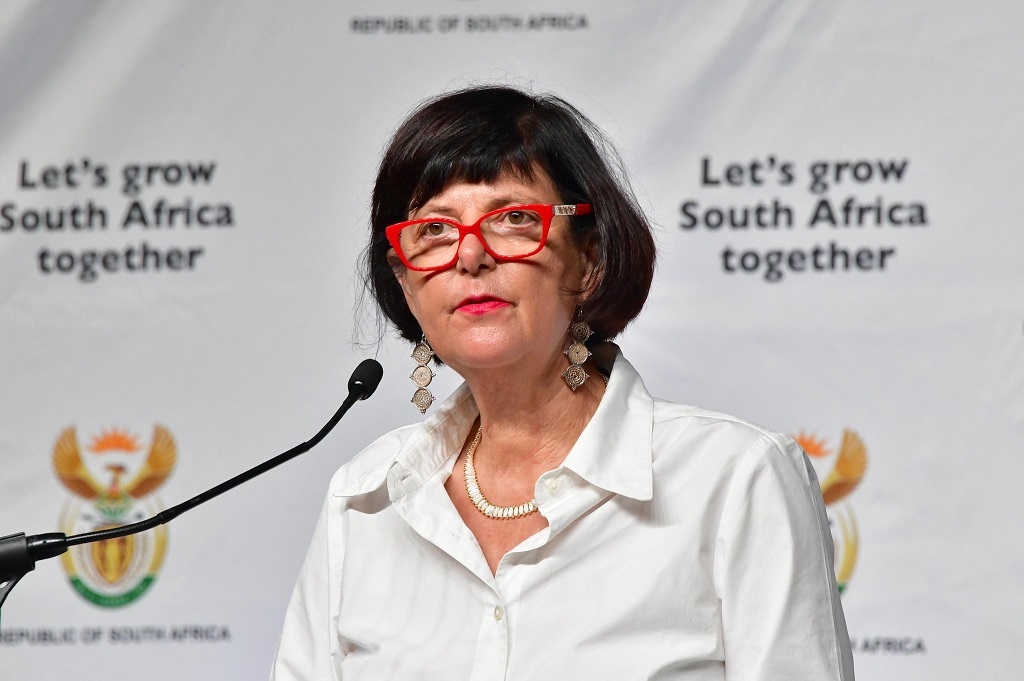
More than three-quarters of South Africa's wetland ecosystems are threatened. As a water-scarce country, the importance of wetland restoration and improving water reserves cannot be overstated, writes Barbara Creecy.
Wetlands play a crucial role in providing water-related ecosystem services such as clean water, cooling water for the energy sector, and water regulation, (for example, flood regulation). They also help with erosion control, land formation, and provide resilience to storms and climate change. Furthermore, wetlands provide valuable services for agriculture, fisheries, and tourism.
There is an urgency to raise awareness about the threats that wetlands face globally with 90% of these ecosystems degraded or already disappeared. Earlier this month, on 2 February, we celebrated World Wetlands Day and called on all South Africans to play a role in the protection of the country's valuable wetland ecosystems. This year's theme, "It's Time for Wetland Restoration" aims to promote the conservation and restoration of these vital water resources.
The UN Decade on ecosystem restoration, which we are part of, is a great opportunity to rethink the human impact on the environment, particularly on wetlands.
The latest global biodiversity assessment reveals that wetlands are disappearing three times faster than forests, and in South Africa - 79% of our wetland ecosystems are threatened.
We are a water-scarce country – ranking among the 30 driest countries in the world. Thus, the importance of wetland restoration and improving water quality and quantity cannot be overstated. The protection and clearing of river catchments could increase water supply by as much as one-sixth at a fraction of the cost of other projects like desalination.
In response to the significant threats facing our wetlands, the Department of Environment, Forestry, and Fisheries has invested over R461 million in the rehabilitation and maintenance of wetlands in South Africa. The Working for Wetlands Programme – launched in 2017 - is an Expanded Public Works Programme that focuses on the remedial interventions for maintaining healthy wetlands.
In the last five years, the programme has rehabilitated 634 wetlands across the country, constituting approximately 22 500 hectares.
This has led to improved water supplies and economic benefits from natural and agricultural habitats. The programme has also created 12 513 full-time and part-time jobs and has focused on maximising socioeconomic benefits through employment creation, skills development, and the development of small local businesses.
South Africa's rich biodiversity comes with a responsibility to conserve and use it sustainably. Wetlands are critical in delivering on global commitments relating to biodiversity, climate change, and sustainable development, especially in light of the global commitments the country made in 2022 during the Conference of Parties to the CBD, United Nations Framework Convention on Climate Change, Convention on International Trade in Endangered Species of Wild Fauna and Flora and the United Nations Convention to Combat Desertification.
In November 2022, the City of Cape Town became South Africa's first city to be accredited as a Ramsar Wetland City. Because of the threats posed by urbanisation and the increased demand for land on wetlands, the Convention on Wetlands in 2015 introduced Wetland City Accreditation for cities that have recognised the importance of protecting urban or peri-urban wetlands.
Cape Town is home to over 11 000 hectares of wetlands which provide essential services such as disaster risk reduction and contribute to climate change adaptation and mitigation. The city is recognised as a global hotspot of biodiversity and thus has a corresponding number of rare and threatened wetlands supporting many endemic fauna and flora species.
These wetlands include the Rietvlei and Milnerton Lagoon (part of the Table Bay Nature Reserve), the Zandvlei Estuary, Edith Stephens Wetlands, False Bay Nature Reserve (a wetland of international importance), the Noordhoek wetlands and many others. Over the past 20 years, the city has implemented several initiatives, both inside and outside of protected areas, with the aim of rehabilitating wetlands and conserving these natural assets.
The loss of wetlands is a problem that needs to be addressed on a global scale, and South Africa, as a contracting party to the Ramsar Convention, is taking significant steps in wetland rehabilitation and maintenance.
South Africa has 28 wetlands of international importance also known as RAMSAR sites in different provinces.
Barbara Creecy is the Minister of Forestry, Fisheries and the Environment. Views are her own.

